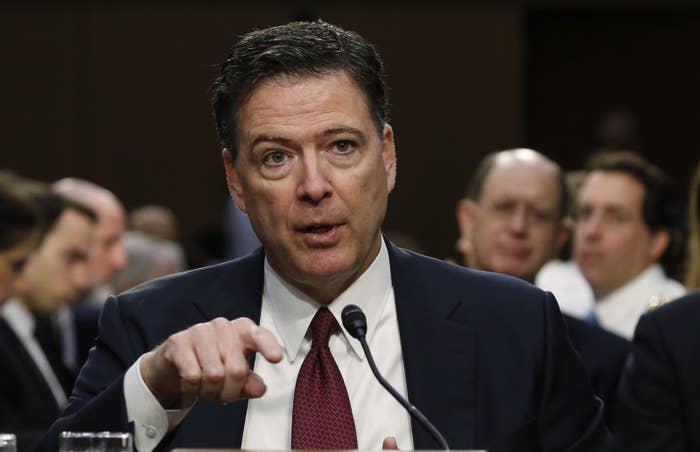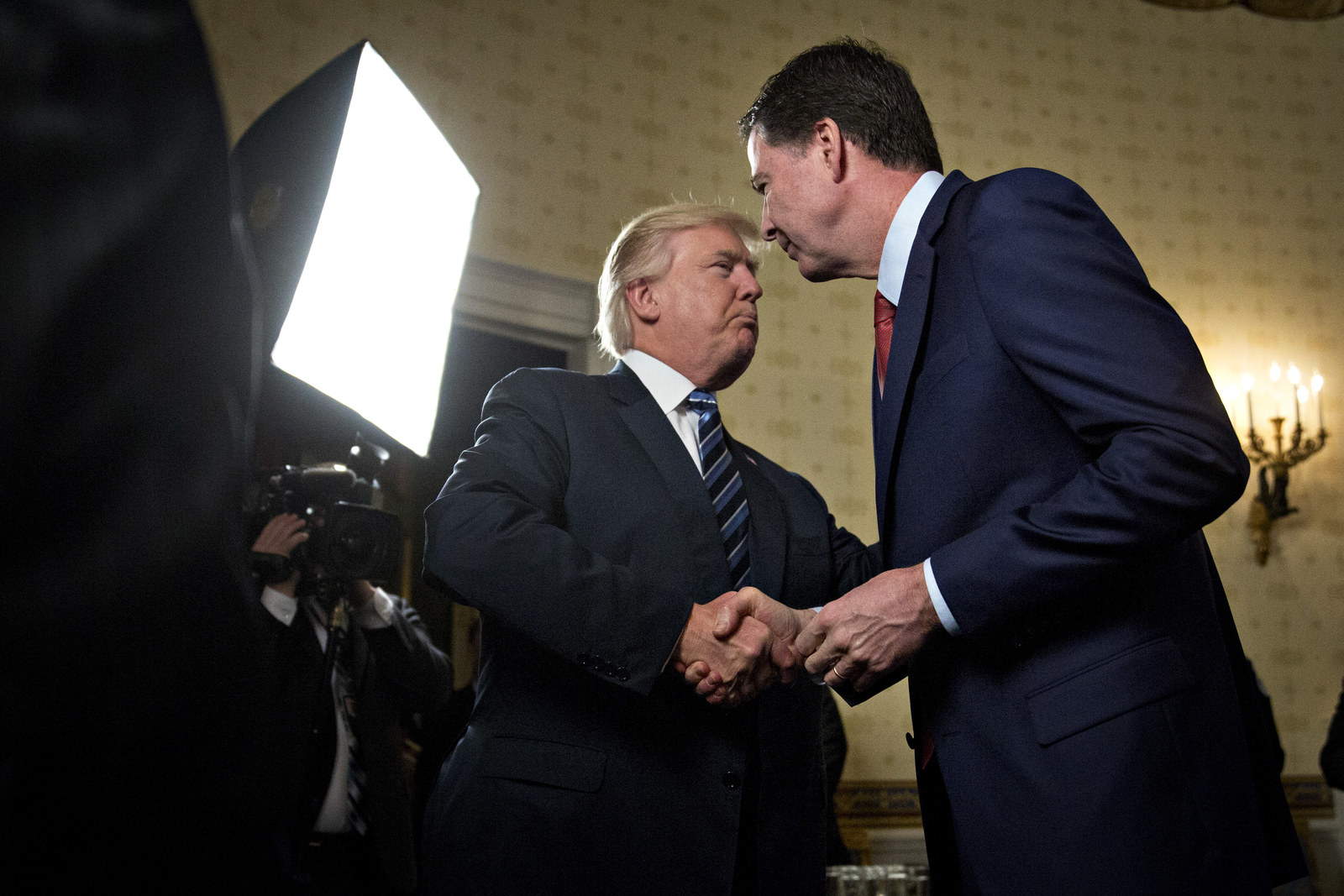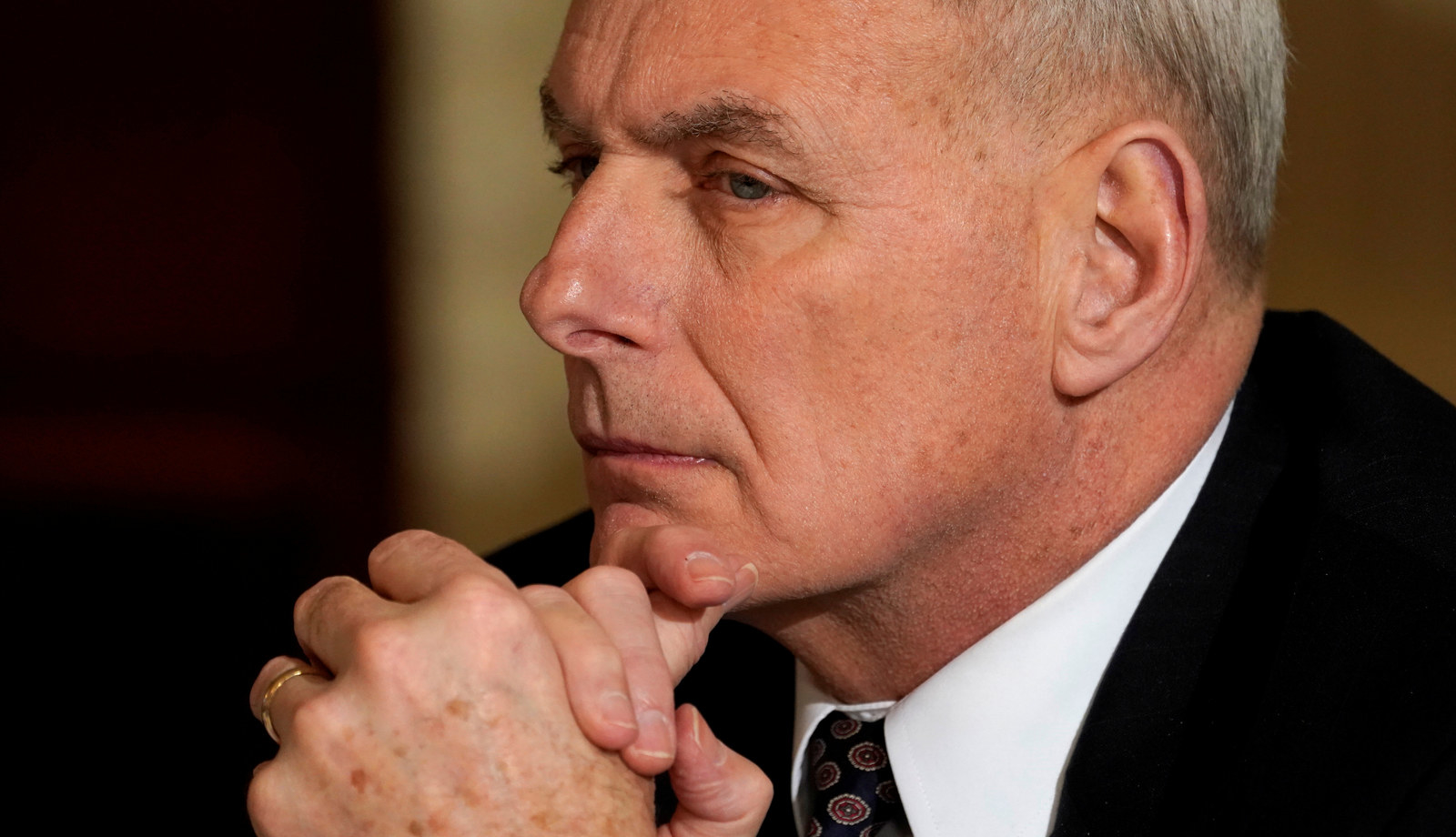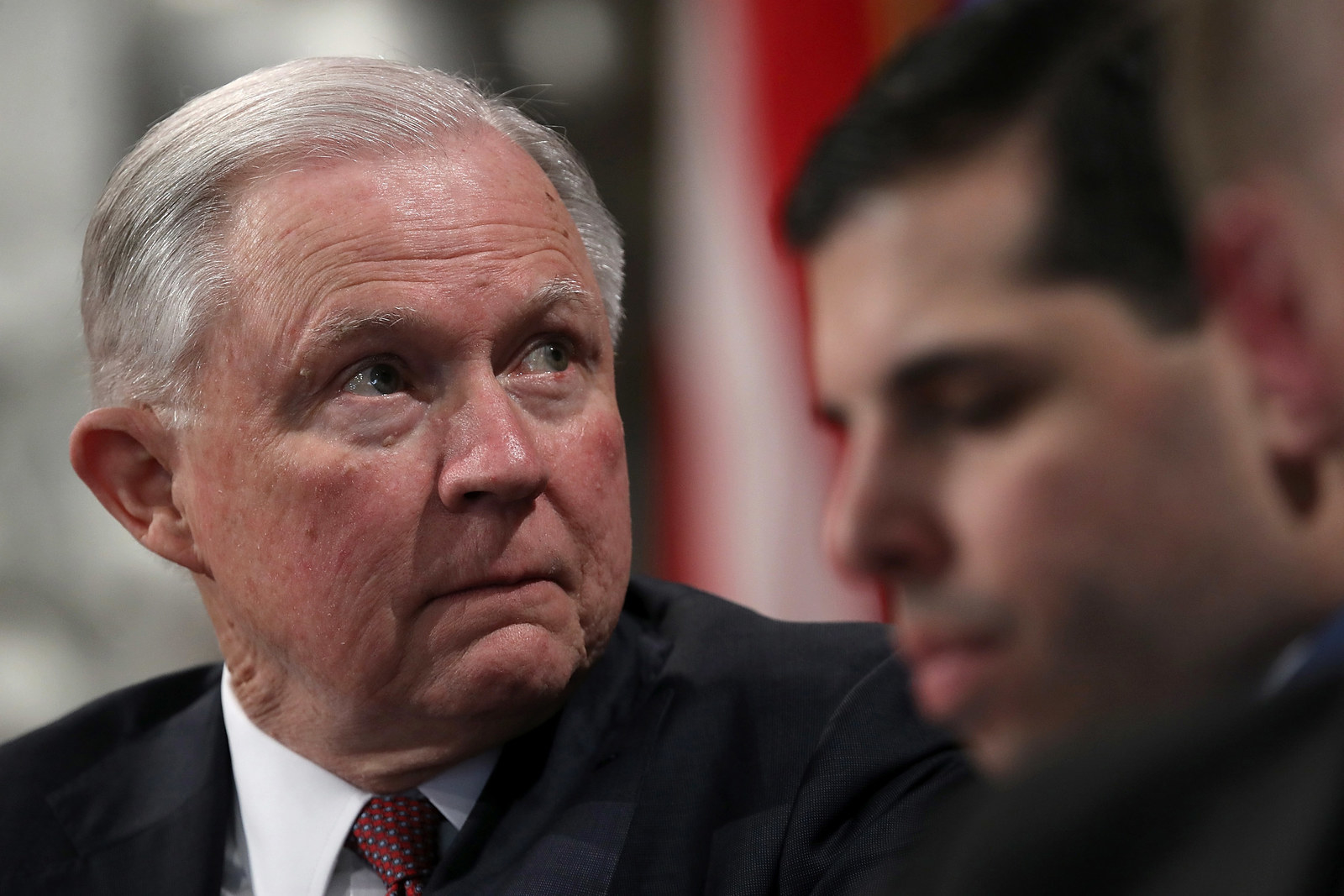Advance copies of fired FBI director James Comey's highly anticipated book, A Higher Loyalty: Truth, Lies and Leadership, were released Thursday, and boy does he have a lot to say about his former boss, President Donald Trump.

BuzzFeed News obtained a copy of the book, which is scheduled to be released April 17.
In the book, Comey, who served as director of the FBI from 2013 until Trump fired him last year in mid-May, shares accounts of how he handled the Hillary Clinton email investigation, the circumstances around his firing, and other experiences during his career spanning three presidential administrations.
Comey was abruptly fired for, according to a Justice Department memo, his handling of the investigation into Clinton's use of a private email server while she was secretary of state.
But hanging over everything was Comey's FBI investigation into Russian interference in the 2016 presidential election and potential ties between Trump's campaign and Russia.
Throughout his memoir, which is mostly based on notes he took after his meetings and conversations with the president, Comey takes several jabs at Trump, calling his presidency a "forest fire" and poking fun at his hand size and complexion.
"Donald Trump's presidency threatens much of what is good in this nation," Comey writes. "This president is unethical, and untethered to truth and institutional value. His leadership is transactional, ego driven, and about personal loyalty."
Here are some of the more noteworthy things from the book:
Comey repeatedly likens Trump to a Mafia boss.

Comey makes fun of Trump's hand size and complexion.
Trump's face, Comey writes, appeared "slightly orange, with bright half-moons under his eyes" that he assumed were caused by small tanning goggles. Comey also riffs on Trump's "impressively coiffed, bright blond hair," and how he made a mental note to check the size of president's hand when he extended it.
"It was smaller than mine, but did not seem unusually so," Comey recalls.
Trump asked Comey to look into the "golden showers thing."
Also during the White House dinner, Trump brought up former British spy Christopher Steele's dossier that alleged links between Trump and the Russian government.
Unprompted, and in another zag in the conversation, he brought up what he called the “golden showers thing,” repeating much of what he had said to me previously, adding that it bothered him if there was “even one percent chance” his wife, Melania, thought it was true.
That distracted me slightly because I immediately began wondering why his wife would think there was any chance, even a small one, that he had been with prostitutes urinating on each other in Moscow … In what kind of marriage, to what kind of man, does a spouse conclude there is only a 99 percent chance her husband didn’t do that?
Comey assumed Hillary Clinton was going to win the 2016 election.
The former FBI director said he has asked himself repeatedly if he was influenced by that assumption when he decided to announce 11 days before the election that the FBI had found new emails related to the closed email investigation.
It is entirely possible that, because I was making decisions in an environment where Hillary Clinton was sure to be the next president, my concern about making her an illegitimate president by concealing the restarted investigation bore greater weight than it would have if the election appeared closer or if Donald Trump were ahead in all polls. But I don't know.
The FBI was already investigating Clinton for mishandling classified information as her campaign denied reports of a criminal inquiry.
Under pressure from Clinton's presidential campaign, The New York Times issued two corrections on a July 23, 2015 story reporting that two inspectors general had asked the Justice Department to open a criminal investigation into Clinton's handling of her emails.
The corrections stated that Clinton was not the focus of any FBI investigation and that the inspectors general request was a "security referral," not a "criminal referral."
But, as Comey writes, by the time the article was published, the FBI had already started its criminal investigation into Cinton's handling of her emails.
"Though the Times may have thought those clarifications were necessary, their original story was much closer to the mark," Comey writes.
Clinton's former communications director Jennifer Palmieri told the Times Friday that when the campaign complained to the newspaper about the July 2015 story she and other advisers did not know Clinton was under criminal investigation.
Palmieri said that pushing back against the story was a smart and effective move by the campaign.
Comey writes in his book that the FBI didn't correct the Times because the bureau was not at a point where it was "appropriate" to confirm the investigation.
Comey said there is still classified information that could cast doubt on former Attorney General Loretta Lynch’s independence in the Clinton email investigation.
Lynch came under fire for meeting with President Bill Clinton while his wife was still under investigation. Shortly after that meeting, Lynch announced that no charges would be filed against Hillary Clinton or her staff over her handling of classified information on a personal server.
Still, Comey said he never saw Lynch interfere with the investigation.
“But it bothered me that there was classified information that could someday become public — likely decades from now — and be used to attack the integrity of the investigation and, more important, call into question the independence of the FBI,” he wrote.
In a statement Sunday night, Lynch responded to Comey's forthcoming criticism, saying that she followed Justice Department policies in regards to the Clinton investigation, and that Comey had never before raised issues with her conduct.
"If he had any concerns regarding the email investigation, classified or not, he had ample opportunities to raise them with me both privately and in meetings," Lynch said. "He never did.”
Then–Secretary of Homeland Security John Kelly told Comey he was “sick” about Trump firing the FBI director and that he planned to quit in protest of the decision.

Comey says Attorney General Jeff Sessions was "overwhelmed" by the job and it reminded him of Alberto Gonzales, who led the Justice Department under George W. Bush.

CORRECTION
John Kelly is the White House chief of staff. An earlier version of this post said Comey was chief of staff.


